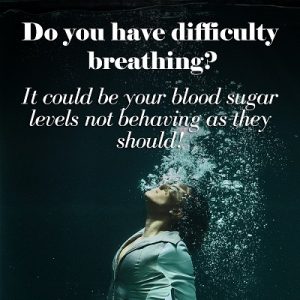 There is nothing so precious as our next breath of air. It is said we can go three weeks without food and three days without water, but three minutes without air is deadly for most people.
There is nothing so precious as our next breath of air. It is said we can go three weeks without food and three days without water, but three minutes without air is deadly for most people.
A great many people struggle with their breathing, either continually or periodically. Many of these people have been given reasons and diagnoses that make sense, such as asthma, allergy or emphysema.
There are many people who have unexplained, intermittent episodes where they struggle for breath, or feel as though they do. It may have been explained away by their doctor as panic attack, anxiety symptoms or simply put under the allergy umbrella.
In most cases these diagnoses may be correct, however some are left doubting as they cannot see a common cause or trigger when they have the problem.
Some sufferers have found relief by increasing their magnesium intake, others have found that variables such as air pressure and dew point have an effect on their ability to take a satisfying breath.
Could It Be Low Blood Sugar?
One possible cause that is gaining some recognition is low blood sugar. A number of people who have either been diagnosed as suffering from hypoglycemia, or who have tested themselves and know it to be so, claim there is a correlation between their breathing problems and low blood glucose levels.
At the same times they have been experiencing symptoms of hypoglycemia, such as feeling tired, disorientated, lethargic, anxious, shaky and hungry (especially for sugary snacks), they have had problems with their breathing.
The feelings described by sufferers is that of not being able to take a full satisfying breath, or of having an elephant sitting on their chest as they tried to breathe.
When the hypoglycemic condition has been overcome, the ability to take full, satisfying breaths returns.
There appears to be little or no medical proof at this stage, and the evidence is anecdotal, but certainly compelling.
Some have been examined by their doctor during this time and been told that they are in fact taking full breaths, so they are told the problem must by psychological, due to anxiety or stress etc.
So, it may be possible that the body is taking full breaths but there is a signaling problem at the time.
Whether full breaths are being taken or not, it has been theorized that the reason why low blood glucose may be the culprit is because the brain is so dependent on our blood glucose. The brain has first call on blood glucose, and when supplies are low, other systems will be slowed or shut down to protect brain function as long as possible.
Whether this affects actual lung function or signaling is conjecture, what matters is that if low blood sugar is causing it, it can be prevented by maintaining correct levels.
For anyone who has not been given a satisfying diagnosis or explanation of their breathing problem, if you suspect that you have bouts of hypoglycemia, or low blood sugar, it might be well worth your while to invest in a testing kit, to monitor your levels.
If you do test positively for hypoglycemia, and it corresponds to your breathing difficulty, you will at last have an explanation. You will also have one more big reason to address your hypoglycemia problem. Recognizing that your breathing problem is a symptom of your low blood sugar lets you focus on fixing the cause.
How reassuring to know you can reduce or eliminate the scary feeling of not being able to take a fully satisfying breath?






